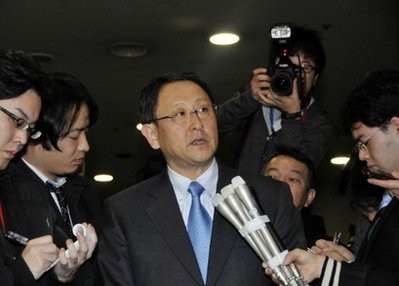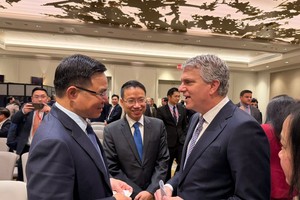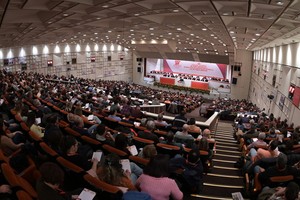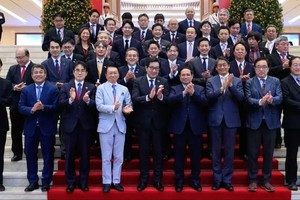Toyota sought to discredit fears over the automaker's electronics here Monday but were forced onto the defensive hours later when a Prius went speeding out of control along a California highway.
The Japanese automaker insisted that the mechanical fixes it is applying to more than eight million vehicles recalled worldwide are sufficient and that its tests are rigorous.
It empanelled engineers from Stanford University and a top consulting firm to dismiss as "unrealistic" and contrived a study showing crossed wires could send a false signal that would cause Toyota cars to speed out of control.
David Gilbert, a professor of automotive technology at Southern Illinois University, told a US congressional investigation last month that some Toyota and Lexus vehicles may have an electronics design flaw.

Toyota dismissed his findings, saying he had re-engineered and rewired the signals from the accelerator pedal in order to create the flaw rather than analyzing "real world" evidence.
"If an electrical system is re-engineered and rewired it's not surprising that subsequent testing of the system may cause unrealistic results," Toyota spokesman Mike Michaels told reporters.
"Speculation is easy. Science takes a lot more effort."
US regulators said last week that they had received more than 60 complaints from Toyota owners reporting sudden unintended acceleration despite having their recalled vehicle repaired by a Toyota dealer.
Toyota is in the process of investigating those complaints and has found that some of the incidents were a result of incomplete repairs, Michaels told reporters.
"We remain confident that if the modifications to the vehicle are deployed and done properly that they are effective," he said.
Yet just hours after Toyota's trenchant criticism of Gilbert's findings, the company was grappling with another public relations nightmare after a runaway Prius drama in California.
James Sikes, 61, was driving on the busy Interstate 8 freeway outside San Diego when he noticed his car was starting to accelerate of its own accord, the California Highway Patrol said.
The terrified motorist was helpless as the car raced along the road at speeds of more than 90 miles per hour.
Tragedy was only averted after Sikes was able to call police, and officers using a loudspeaker talked the driver through the process of slowing down by using his emergency brake and then turning off the engine.
Police then pulled in front of the car as it decelerated and rolled to a stop and put the rear bumper of the squad car against the front of the Prius.
"I was on the brakes pretty healthy," Sikes told NBC San Diego. "It wasn't stopping, it wasn't doing anything to it, and just kept speeding up."
Toyota later issued a statement saying technical specialist had been sent to San Diego "to investigate the report and offer assistance."
The drama was a chilling echo of the tragic accident last August where off-duty California Highway Patrol Officer Mark Saylor and three family members were killed when the accelerator of the Lexus ES350 they were in got stuck.
Minutes later, the Toyota-manufactured vehicle slammed into the back of a sport utility vehicle at about 100mph, veered off the freeway, overturned and burst into flames. All four family members died.
Toyota, which overtook General Motors in 2008 to become world number one automaker, has seen its reputation tarnished by a litany of complaints ranging from unintended acceleration to brake failure and steering problems.
The Japanese auto giant's president, Akio Toyoda, met Monday with Prime Minister Yukio Hatoyama, who urged the founding company scion to strive to restore confidence in its brand.
























